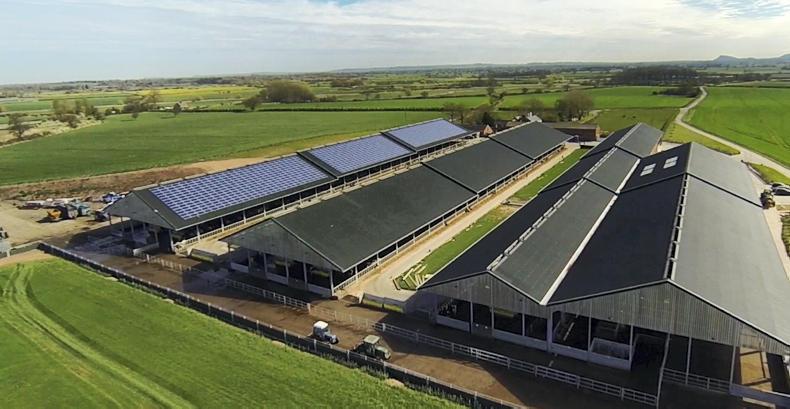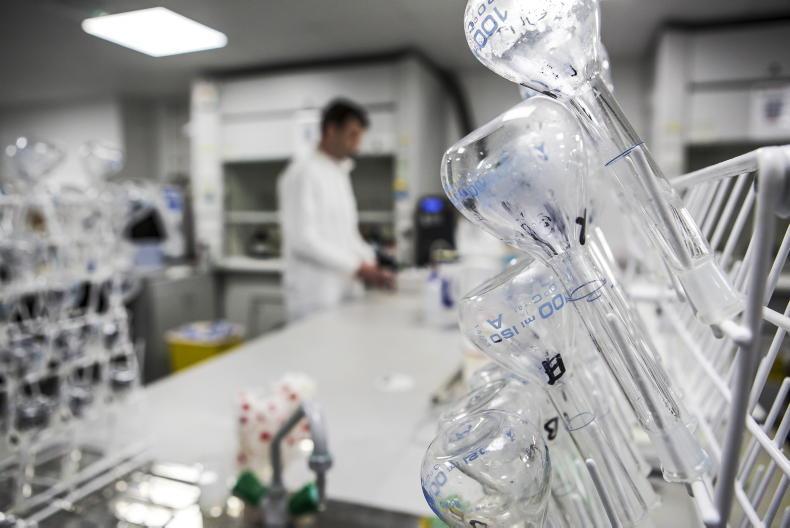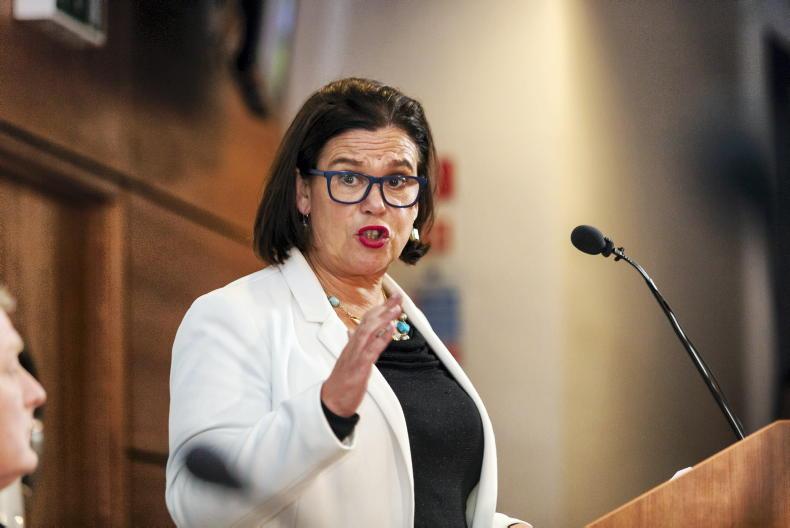Agriculture in the UK can be globally competitive after Brexit if the correct policies are in place, the manager of one of the country’s largest dairy farms has said.
“I am quite confident that, if we get favourable terms of trade and a reasonably level playing field in the regulatory environment, large parts of UK agriculture can rise to the challenge,” said Mark Roach from Grosvenor Farms Ltd.
Speaking on an Oxford Farming Conference webinar last week, Roach was straight talking when giving his views on what UK farmers need from policymakers.
“It would be a nightmare scenario if we are asked to compete on global markets with two hands tied behind our backs, and food of any standard coming into the UK,” he said.
Spanning 6,000 acres, Grosvenor Farms Ltd is Tesco’s largest milk supplier, with 2,500 dairy cows producing 90,000 litres of milk each day.
When Roach arrived on the Chester farm in 1998, it was mainly arable with 800 dairy cows dispersed across seven different herds. Dairying gradually expanded while arable operations were scaled back, and all cows are now milked on a single site.
Building work for the new dairy unit began in 2012 and total milk output has doubled since 2015 as cow numbers moved from 1,400 to 2,500, and average yields rose from 11,000 to 12,500 litres.
Consolidation
Roach said consolidating the dairy business on to modern facilities on a single site reduced costs by around 25%. He maintained that the new unit has led to better animal health, with fewer cases of mastitis and lameness, and improved fertility.
He dismissed the argument often made by animal rights campaigners that bigger farms mean poorer animal welfare: “You don’t get financial performance from poor welfare. I have never seen a sick cow produce much milk.”
The entire herd is managed in a fully housed system, but it was acknowledged there is a risk that retail milk contracts might eventually require cows to be at grass for a period each year.
“We have got a contingency plan in place should we be required to graze our cows. Luckily, we have got quite a lot of land around the dairy where we could set up tracks for various groups to go out,” Roach said.
“If we had to do that, it would increase our cost of production, it would increase our carbon footprint, it would reduce our productivity, and I think it would reduce our animal welfare as well,” he added.
Environment
The management team on the Grosvenor Farm have a strong focus on sustainability, with 11% of the total land area under agri-environment schemes. Carbon auditing has been conducted since 2014 and it shows the farm currently produces 0.85 kg of carbon dioxide equivalent per litre of milk.
Calculations have also been made using the GWP* greenhouse gas system which was developed by researchers at the University of Oxford, and accounts for the short atmospheric lifespan of methane.
“It virtually halves our carbon footprint, and that is before we take account of [soil carbon] sequestration, further developments in the use of renewable energy and productivity gains. We can see a route down to carbon zero,” Roach said.
Read more
Record turnover in NI food processing
Food industry compared with multinationals
Agriculture in the UK can be globally competitive after Brexit if the correct policies are in place, the manager of one of the country’s largest dairy farms has said.
“I am quite confident that, if we get favourable terms of trade and a reasonably level playing field in the regulatory environment, large parts of UK agriculture can rise to the challenge,” said Mark Roach from Grosvenor Farms Ltd.
Speaking on an Oxford Farming Conference webinar last week, Roach was straight talking when giving his views on what UK farmers need from policymakers.
“It would be a nightmare scenario if we are asked to compete on global markets with two hands tied behind our backs, and food of any standard coming into the UK,” he said.
Spanning 6,000 acres, Grosvenor Farms Ltd is Tesco’s largest milk supplier, with 2,500 dairy cows producing 90,000 litres of milk each day.
When Roach arrived on the Chester farm in 1998, it was mainly arable with 800 dairy cows dispersed across seven different herds. Dairying gradually expanded while arable operations were scaled back, and all cows are now milked on a single site.
Building work for the new dairy unit began in 2012 and total milk output has doubled since 2015 as cow numbers moved from 1,400 to 2,500, and average yields rose from 11,000 to 12,500 litres.
Consolidation
Roach said consolidating the dairy business on to modern facilities on a single site reduced costs by around 25%. He maintained that the new unit has led to better animal health, with fewer cases of mastitis and lameness, and improved fertility.
He dismissed the argument often made by animal rights campaigners that bigger farms mean poorer animal welfare: “You don’t get financial performance from poor welfare. I have never seen a sick cow produce much milk.”
The entire herd is managed in a fully housed system, but it was acknowledged there is a risk that retail milk contracts might eventually require cows to be at grass for a period each year.
“We have got a contingency plan in place should we be required to graze our cows. Luckily, we have got quite a lot of land around the dairy where we could set up tracks for various groups to go out,” Roach said.
“If we had to do that, it would increase our cost of production, it would increase our carbon footprint, it would reduce our productivity, and I think it would reduce our animal welfare as well,” he added.
Environment
The management team on the Grosvenor Farm have a strong focus on sustainability, with 11% of the total land area under agri-environment schemes. Carbon auditing has been conducted since 2014 and it shows the farm currently produces 0.85 kg of carbon dioxide equivalent per litre of milk.
Calculations have also been made using the GWP* greenhouse gas system which was developed by researchers at the University of Oxford, and accounts for the short atmospheric lifespan of methane.
“It virtually halves our carbon footprint, and that is before we take account of [soil carbon] sequestration, further developments in the use of renewable energy and productivity gains. We can see a route down to carbon zero,” Roach said.
Read more
Record turnover in NI food processing
Food industry compared with multinationals










SHARING OPTIONS